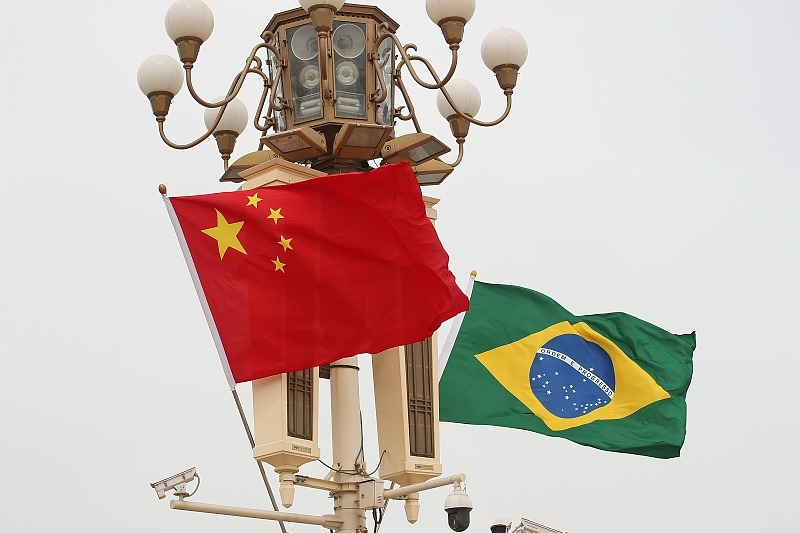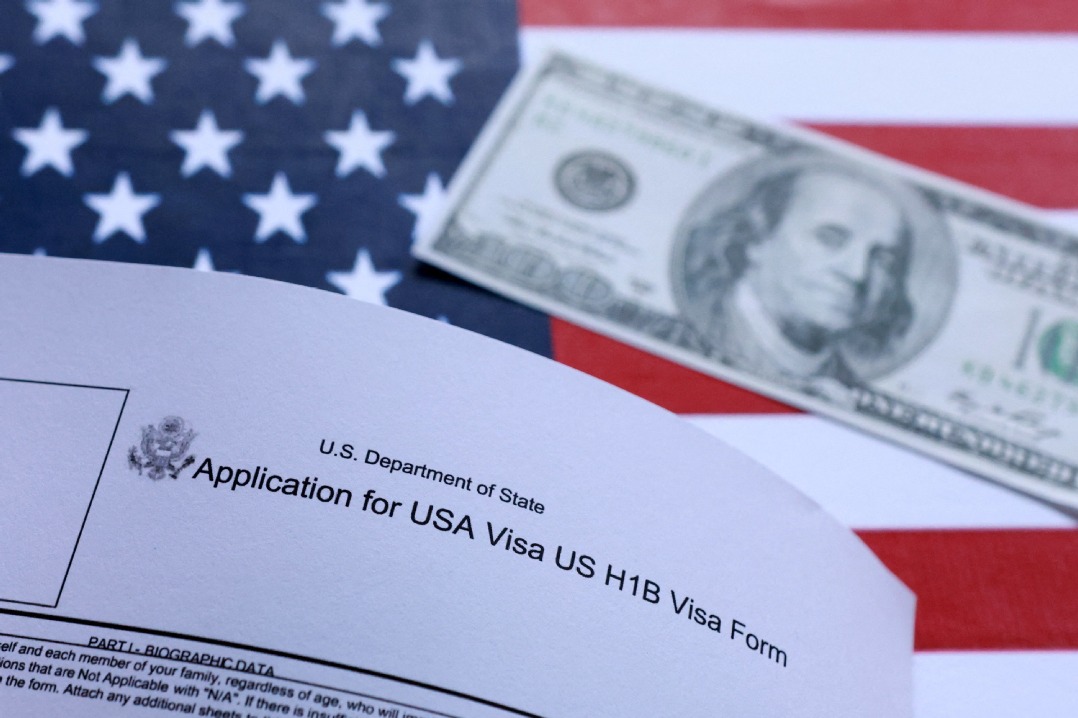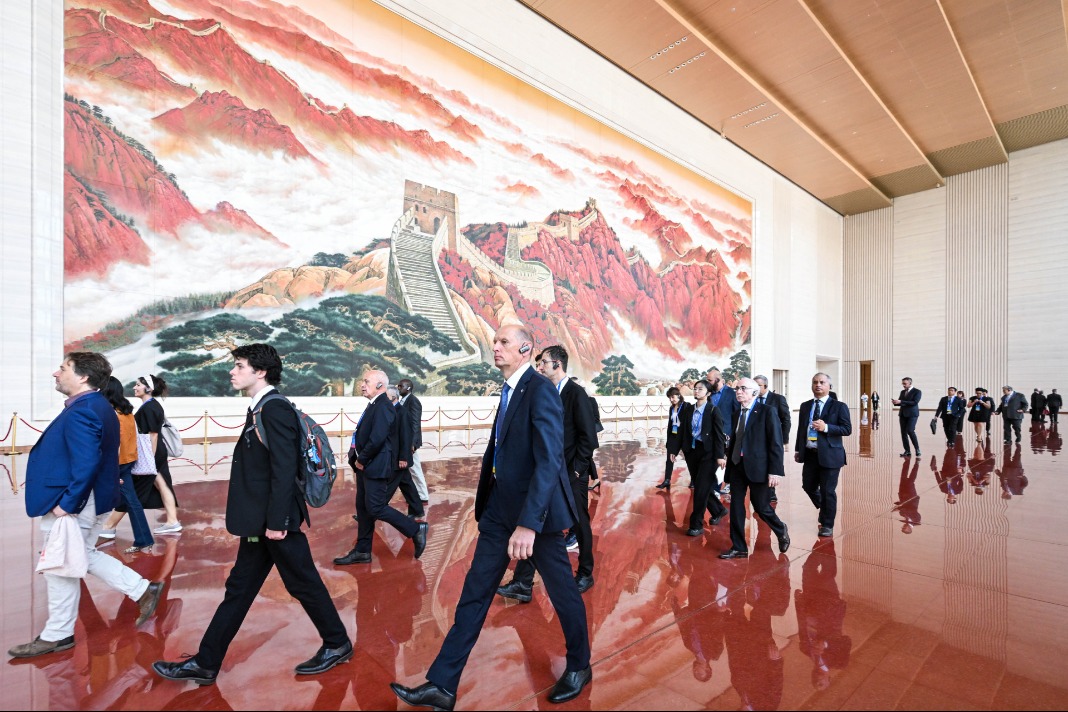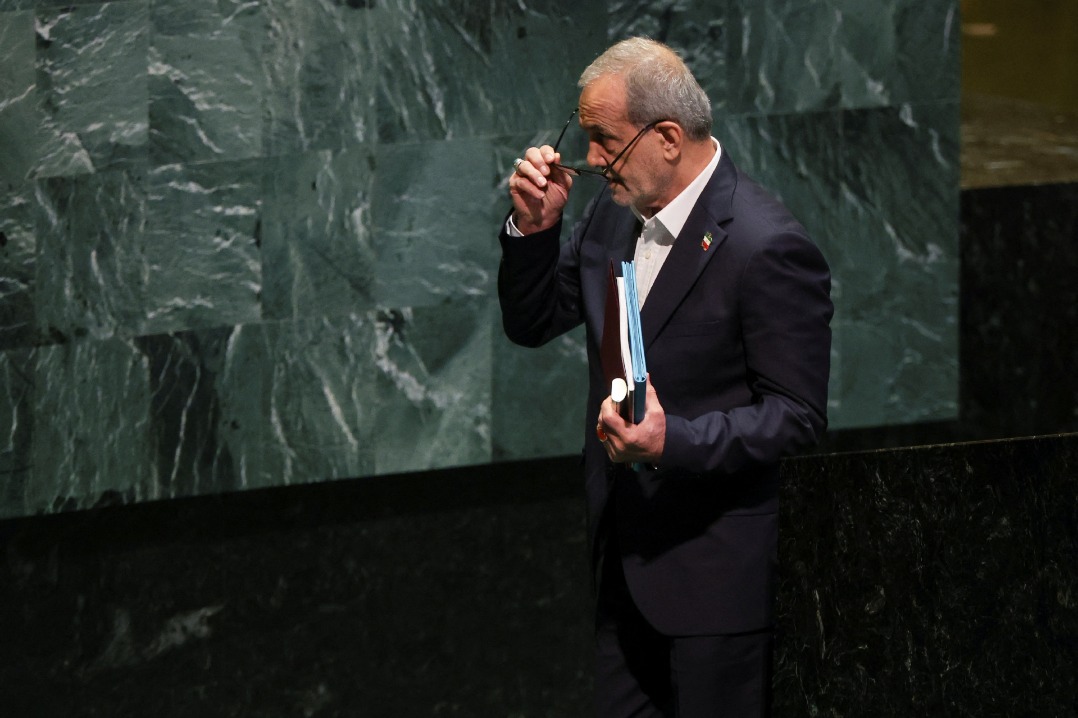What lies next for Ukraine, other European countries

At this point it remains unclear whether the Ukraine conflict will come to an end or not.
The Russian terms for negotiations are clear: the loss by Ukraine of four regions and the removal of all root causes of the conflict. These include the protection of the linguistic, cultural and religious rights of ethnic Russians in Ukraine and elimination of ideology of Ukrainian nationalists Stepan Bandera and Roman Shukhevych, demilitarization and denuclearization of Ukraine, no expansion of the North Atlantic Treaty Organization ever to include Ukraine, and preferably a European or Eurasian indivisible security agreement.
Any settlement, however, would be extremely complicated due to the existence of zero trust, in this case, a sequence of deceptions from the 1990 commitment that NATO would not expand an inch eastward to the Minsk agreements of 2014 and 2015.
The Europeans and Ukraine oppose the Russian terms. Europe has, however, provided neither military nor economic resources to support Ukraine on its own.
According to Bloomberg Economics, supporting Ukraine and expanding their own armed forces may cost the continent's major powers an additional $3.1 trillion over the next 10 years.
The new United States government, however, wants to withdraw from the conflict, on which it has spent $350 billion, and it can improve relations with Russia, as a prelude to turning its attention to its serious domestic problems and China. In the event it seems as if the US plans to negotiate a possible settlement with Russia over the heads of Europe and Ukraine, although it is far from clear if an agreement acceptable to both sides will emerge.
Europe's concerns have increased dramatically. The US Secretary of Defense Pete Hegseth said on Friday the US will not remain in Europe forever. Vice President JD Vance described Europe as a dysfunctional province. To the US, it appears a group of European countries wants the conflict to continue in an attempt to keep alive its confrontation with Russia, preserve NATO and "keep the US in Europe". Despite a meeting of the leaders of eight European countries on Monday, the EU and NATO did not reach a common position on a peacekeeping force, while a US-Russia meeting in Riyadh, Saudi Arabia, marked a step on the difficult path to detente. French President Emmanuel Macron plans to convene a second meeting on Ukraine and European security with some of the countries not invited to the first one.
As far as outcomes of whether the conflict is settled quickly or not are concerned, several points are important.
Much of the world did not participate in trade, financial and banking sanctions on Russia, while Russia itself has dealt with them in a very effective manner. Starting in 2014, Russia has pivoted toward growing Asia, significantly enhanced its military capabilities, engaged in highly effective import substituting industrialization, grown at 4 percent per year for two years and replaced Germany as the fourth-largest economy in the world.
The main losers will be what remains of Ukraine itself and the Europeans.
Russia has already started the reconstruction of parts of the war-devastated territories that it controls and will extend it to the rest once the conflict ends. These areas are moreover resource-rich with close historical relations with Russia.
The rest of Ukraine is in a very difficult situation. In 2024, its gross domestic product was only 49.5 percent of what it was in 1989. Much of its infrastructure dates from the Soviet era but has not been maintained.
Its population declined from 51.8 million in 1991 to 44.4 million in 2019. The United Nations says there are 6.8 million refugees, and more than 1.5 million Ukrainian soldiers and 487 civilians have died, been seriously wounded or are missing in action presumed dead. Its energy infrastructure has been seriously damaged, its transit revenues have irreversibly declined. Much of its valuable agricultural land is in foreign hands and politically powerful oligarchs control some of its major economic assets.
The country is now almost entirely dependent on foreign aid. The International Monetary Fund expects its debt, which stood at almost $160 billion in late 2024 and is owed mainly to the EU, the World Bank and the IMF, to exceed 100 percent of its GDP in the near future.
It lacks the means to service this debt. Bloomberg Economics estimates Ukraine will need to spend around $230 billion to reconstruct damaged buildings and infrastructure, yet pledged funding stands at only $100 billion.
For the EU and NATO, the project of eastern enlargement has hit a wall, and internal divisions grow as some East European member states such as Hungary, Slovakia and perhaps Romania, Bulgaria and Czechia, as well as candidate countries such as Serbia and Georgia may seek to restore relations with Russia and its oil and gas resources.
As for Europe itself, the GDP per head of the EU's 27 member states has grown at only 0.9 percent per year on average since 2008. According to the IMF, the eurozone grew at just 0.8 percent in 2024, and will reach 1.3 percent and 1.4 percent in 2025 and 2026. Germany contracted 0.2 percent in 2024 and will scarcely grow in 2025.
More seriously, soaring energy costs as a result of sanctions on Russia, the destruction of Nord Stream 1 and the damage to one of two Nord Stream 2 pipelines have closed access to cheap Russian pipeline gas. In its place, Europe imported liquefied US natural gas costing four times as much, depressing living standards and damaging European industrial competitiveness.
German manufacturing output has been declining since 2017 and this process has accelerated. In 2024, the German Chamber of Commerce and Industry reported that 51 percent of companies based in Germany with at least 500 employees, as well as 45 percent of companies with high energy costs, are either considering relocating operations abroad or have already started doing so.
European countries face other pressures. The US government is asking them to increase defense expenditure to 5 percent of their GDP — an impossible figure. In February, the US imposed tariffs on steel and aluminum imports and is threatening further tariffs on Europe due to its bilateral trade surplus with the US. And many of its current political leaders are in trouble domestically.
All in all, Europe's short-term prospects are bleak and can only be addressed through a significant change of course economically and politically on the international stage.
The author is an emeritus professor at the University of Sussex in the United Kingdom.

































